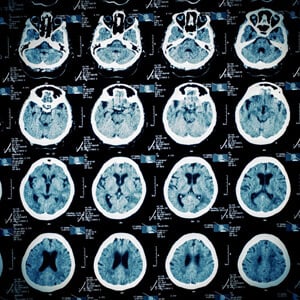
New Brain Injury Treatments
Do you have a loved one who has sustained a traumatic brain injury (TBI)? You are likely to have many questions about treatment options for these types of injuries. A recent article in Penn State News indicates that researchers at the college have developed a new brain injury treatment that regenerates functional neurons after serious head trauma. The same method may also help people who have sustained spinal cord injuries. The leader of the research team, biology professor Gong Chen, referred to the new technology as “a breakthrough in the long journey toward brain repair.”
According to Chen, the new method can be used in a variety of treatments for neurological disorders, including TBIs and spinal cord injuries, but also degenerative illnesses like Alzheimer’s disease and Parkinson’s disease.
How does the new technology work? First, it’s important to understand what happens during head trauma. When a brain injury occurs, “neurons often die or degenerate,” the study explained, “but glial cells become more branched and numerous.” The expanding number of glial cells eventually prevents or limits healthy brain cells from growing.
These terms can be confusing for those of us outside the medical field, but Chen explains how the treatment works in an easy-to-grasp metaphor: “A brain injury site is like a car-crash site,” and “reactive glial cells are like police vehicles, ambulances, and fire trucks immediately rushing in to help—but the rescue vehicles can cause problems if too many of them get stuck at the scene.” According to Chen, that is exactly the problem with glial cells following a traumatic brain injury—too many of these cells rush to and remain at the scene, preventing the brain from healing. The new treatment aims to convert these glial cells into functioning neurons at the site of a brain injury. The study is still in its early stages, but the results appear to be promising.
Brain Injury Treatments
The Penn State research team’s discoveries are a great hope for medical advances in treating TBIs. Brain injury victims currently have several different options for treatment, depending on the severity of the injury.
According to the Mayo Clinic, brain injuries might be treated in one of the following ways:
- Emergency room care: For moderate to severe head trauma, emergency room physicians make sure that a brain injury victim has enough oxygen, a reasonable blood supply, and a stable blood pressure. Emergency room doctors also want to make sure they prevent any further head or neck injury.
- Medication: Depending on the severity of the head trauma, medication may be administered soon after a brain injury. Medications given to limit damage immediately after the incident can include:
- Diuretics: These medications help reduce the amount of fluid inside the body and encourage the production of urine. Therefore, diuretics may help to reduce brain pressure by helping to remove fluid from the body.
- Anti-seizure drugs: Individuals with moderate to severe head trauma are at an increased risk for seizures in the first week after the injury. Therefore, anti-seizure drugs may be given within the week after the injury to help reduce additional brain damage caused by seizures.
- Coma-inducing drugs: In very serious cases, the doctor may need to induce a coma to allow sufficient oxygen to reach the brain.
• Surgery: In some cases, emergency surgery is performed immediately after a brain injury, but it can also be used at points after the initial injury. In general, surgery may be used to remove hematomas, repair fractures to the skull, and relieve pressure within the skull.
• Rehabilitation: Individuals who suffered a significant brain injury may require some form of Rehabilitation. This can take many different forms, depending on the type of brain injury suffered and its severity. In general, rehabilitation may include- but is not limited to; physical therapy, occupational therapy, speech therapy, neuropsychology, recreational therapy, cognitive rehabilitation and/or vocational counseling.
If you have sustained a brain injury, you should seek immediate medical attention. A medical professional can advise you about treatment options. In some instances, you may be eligible for financial compensation for your injury. A brain injury lawyer can help you decide whether to file a claim for compensation.



